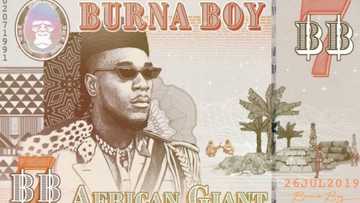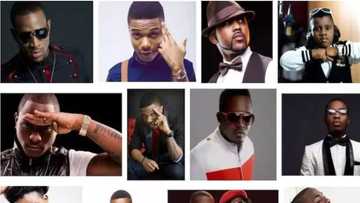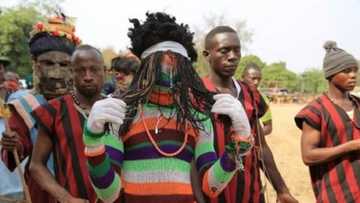Hausa musical instruments and their names
The African continent is famous for a huge selection of musical instruments. They have been used for centuries and continue to gain popularity in different tribes and ethnic communities. Each ethnic culture has its own unique traditional instruments. There are only two types of musical instruments: wind and stringed. We would like to present you the top 10 Hausa musical instruments and their names.
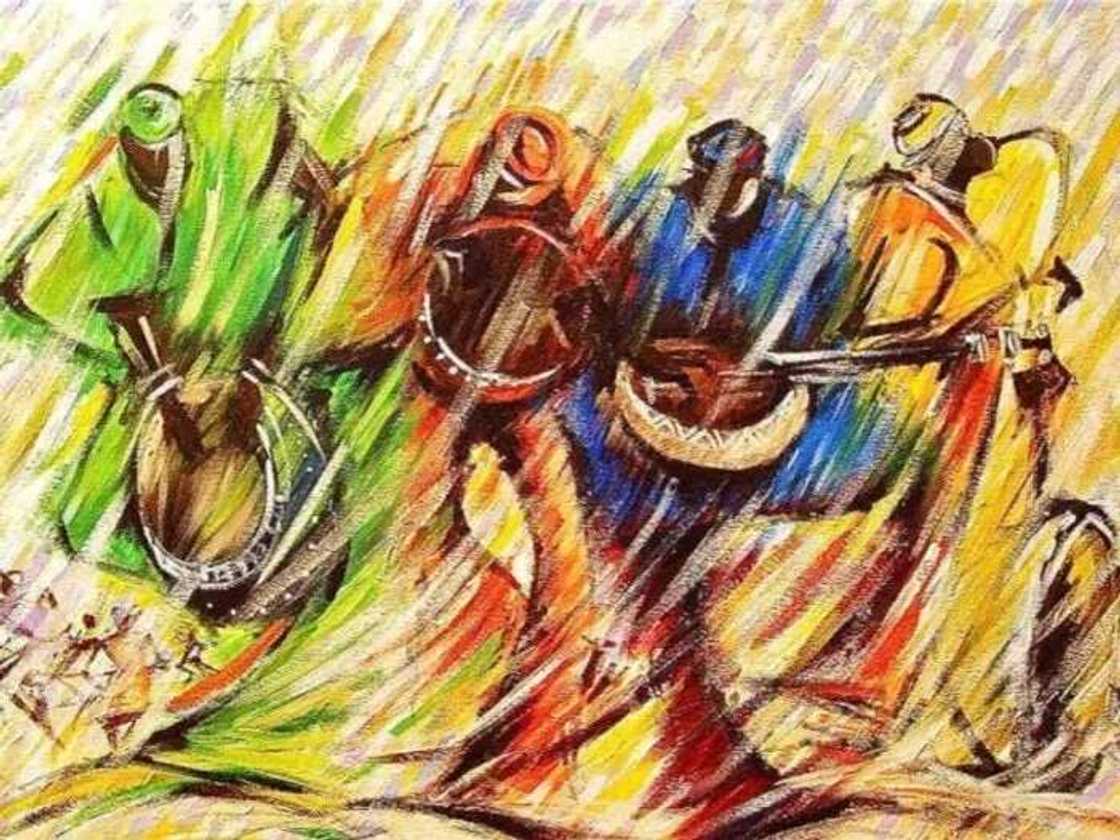
Hausa music
Hausa is one of the largest ethnic groups in Nigeria, Niger, Ghana, Sudan, Cameroon and many countries in West and Central Africa. Their folk music played a role in the development of Nigerian music, bringing elements such as Gogh or violin with one string. Hausa's music is divided into two types: rural folk music and urban court music.
Hausa instrumental can be modern and traditional, depending on the celebration where it is performed.
Musical instruments and their names
So, what are Nigerian musical instruments typical to Hausa culture? Checkout top 10 most popular Hausa musical instruments.
READ ALSO: Hausa tribe: interesting facts
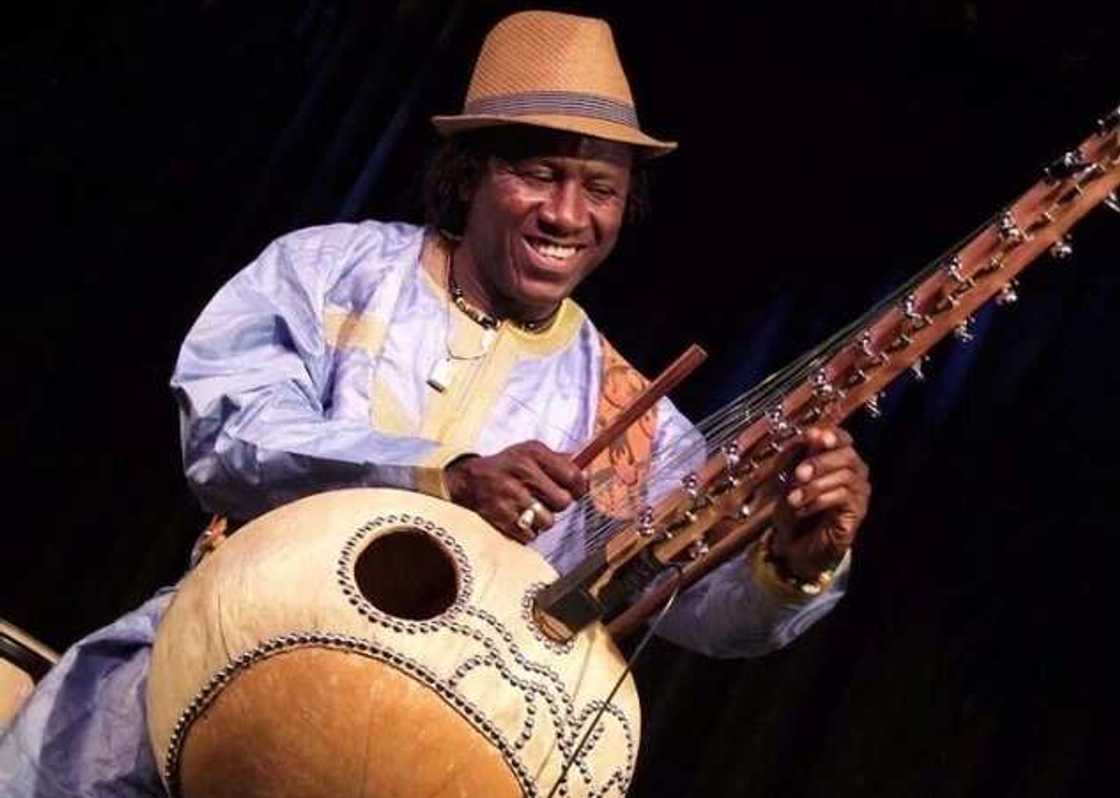
1. The Kora
Probably it is one of the most popular and well-known musical instruments. It's also called ”Jali". The appearance of the instrument resembles an ordinary guitar. 21 strings are placed on a gourd covered with skin/hide of an animal. This musical instrument is quite popular in Senegal, the Gambia, Burkina Faso, Benin, and Mali.
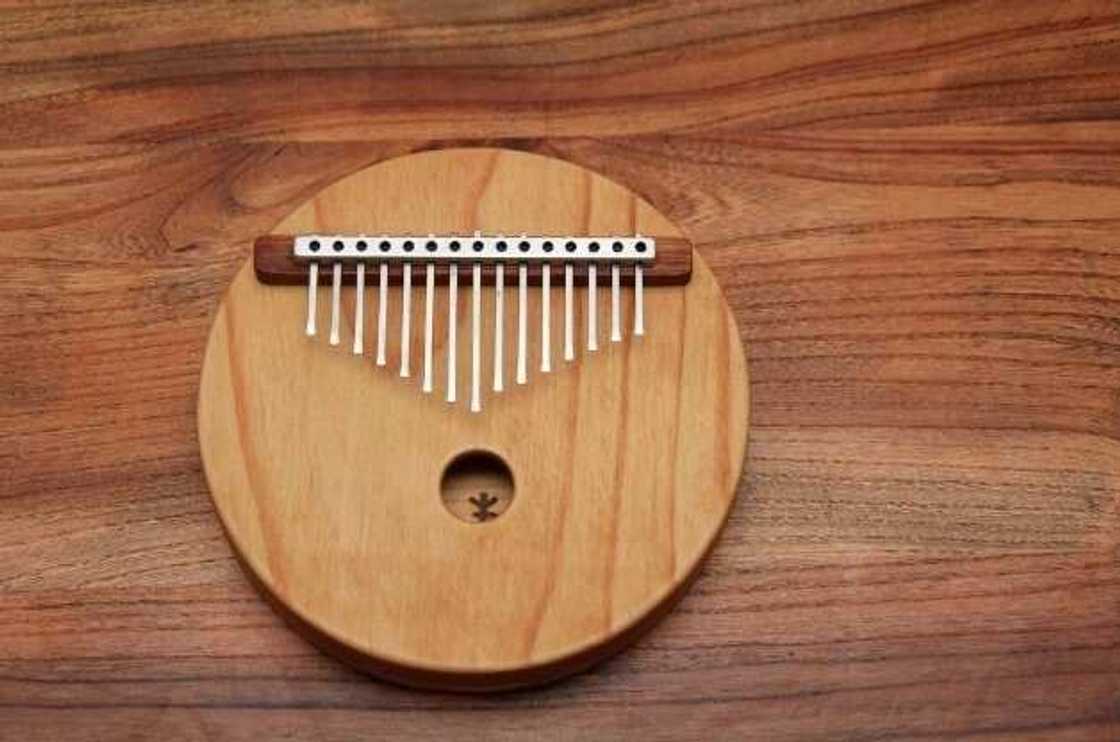
2. Kalimba
It is also known as the thumb piano. The musical instrument consists of metal strips attached to the resonator. The strips can be of different lengths. To reproduce the sound, you need to touch the ends of the strips with a finger pad. Initially, Kalimba was made of bamboo strips, but in a more modern version, they are made of metal. The case itself is made of wood. The instrument is popular in West and Central Africa.
READ ALSO: Hausa festivals and holidays in Nigeria
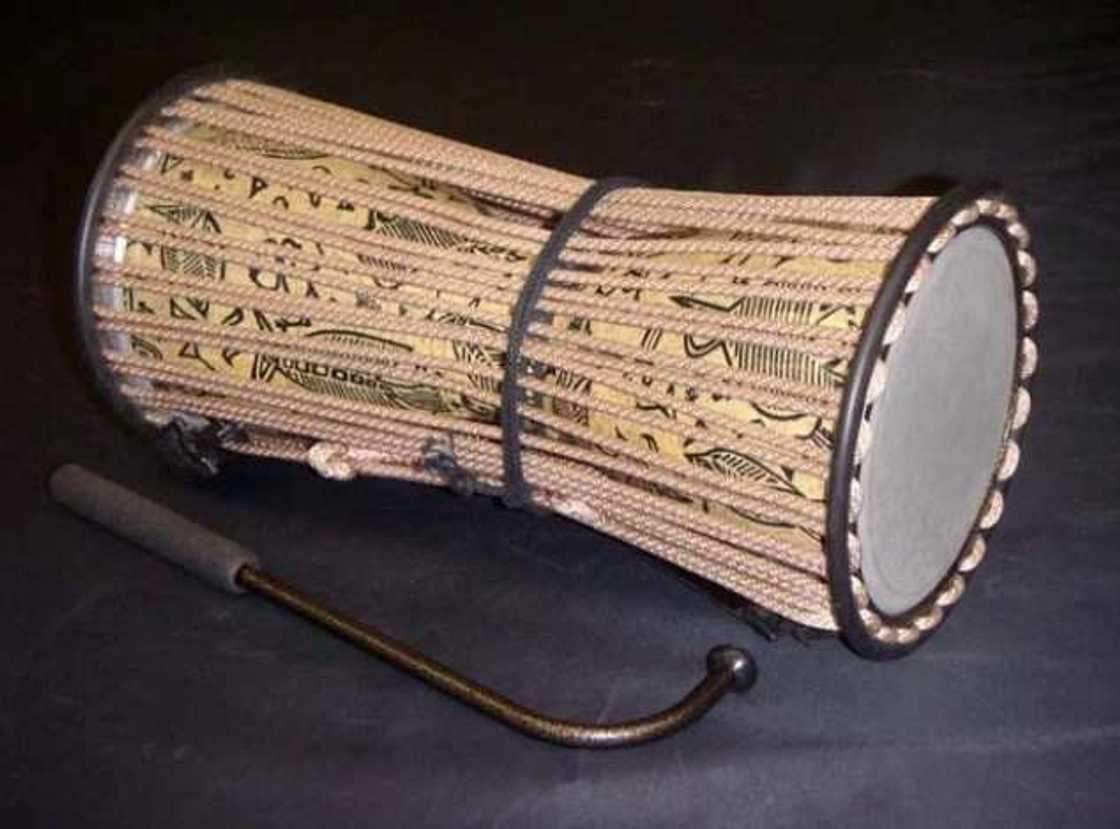
3. The Talking drum
It's probably the most famous musical instrument in entire Africa. It was invented in West Africa in such countries as Nigeria, Mali, Ghana, Togo, and Benin. The drum has the shape of an hourglass and is often placed under the arm for the convenience of the game. To change the pitch or sound, a musician presses or compresses the narrow edge of the drum.
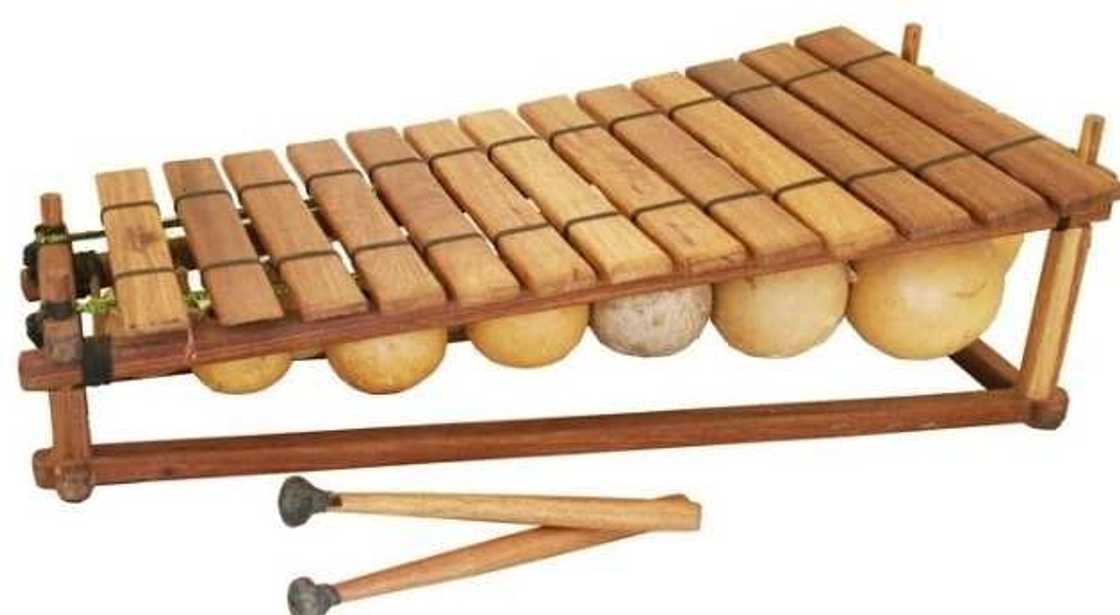
4. The Balafon
It often resembles the shape of a xylophone or African Marimba. This percussion instrument commonly can be found in Ghana, Mali, and Burkina Faso. The musical instrument is made with wooden slats that are loosely tied with a cord over the small gourd. The sound is produced when the boards are hit with small sticks/hammers.
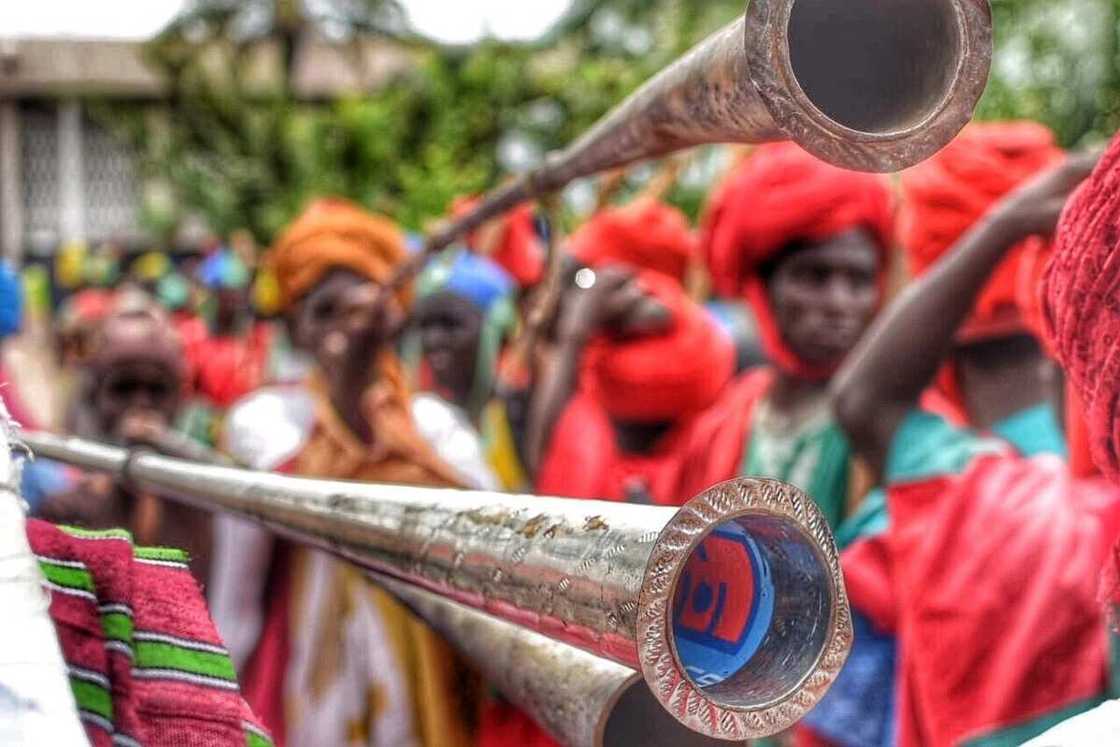
5. Kakaki
This wind instrument is a three or four meters metal trumpet. The kakaki is used very often during Hausa traditional ceremonies and different events. The sound of kalaki is associated with royalty and it is only played at events at the palace of the king or sultan in Hausa societies. Kakaki is exclusively played by men.
Kakaki is most popular in Nigeria, Chad, Ghana, Burkina Faso, Benin, Niger. There are also two other names of this instruments: in Chad and Sudan it is called waza, and residents of Ethiopia call it malakat.
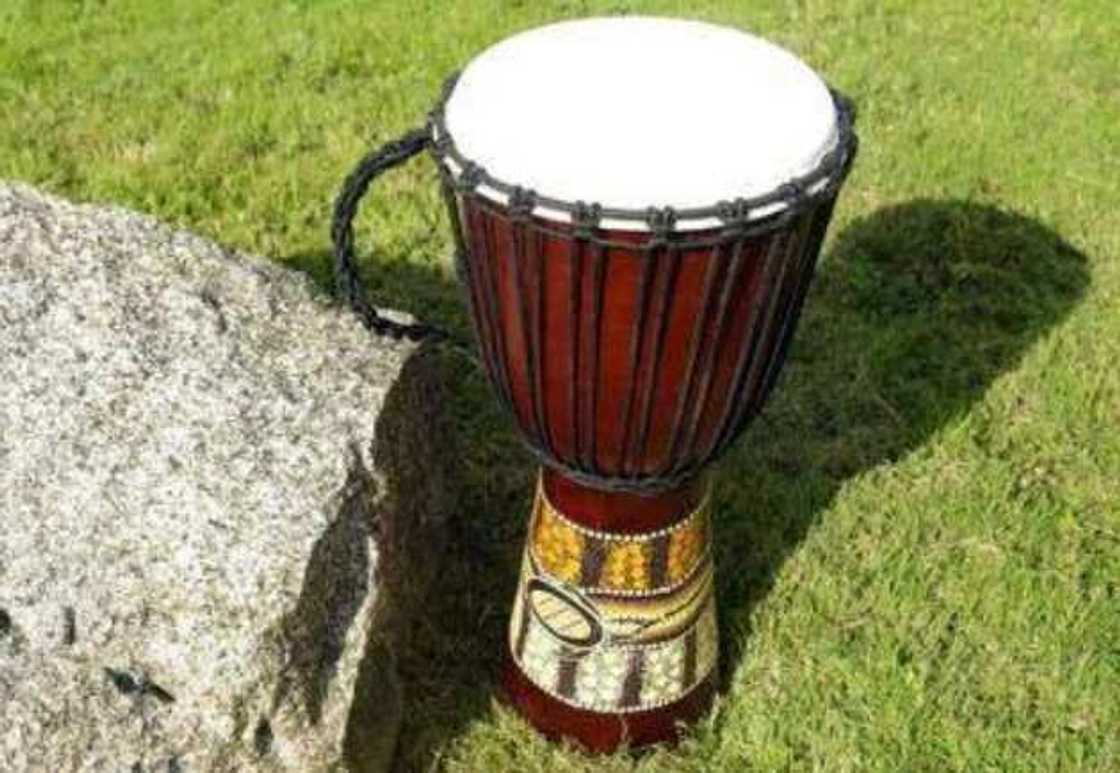
6. Djembe/jembe
It is another type of drum in Central and West Africa. The hide of an animal or simply the skin fits a curved piece of wood. The top surface is always wider than the bottom, so you can see small holes in places where the skin is stretched.
READ ALSO: Hausa names and their meanings
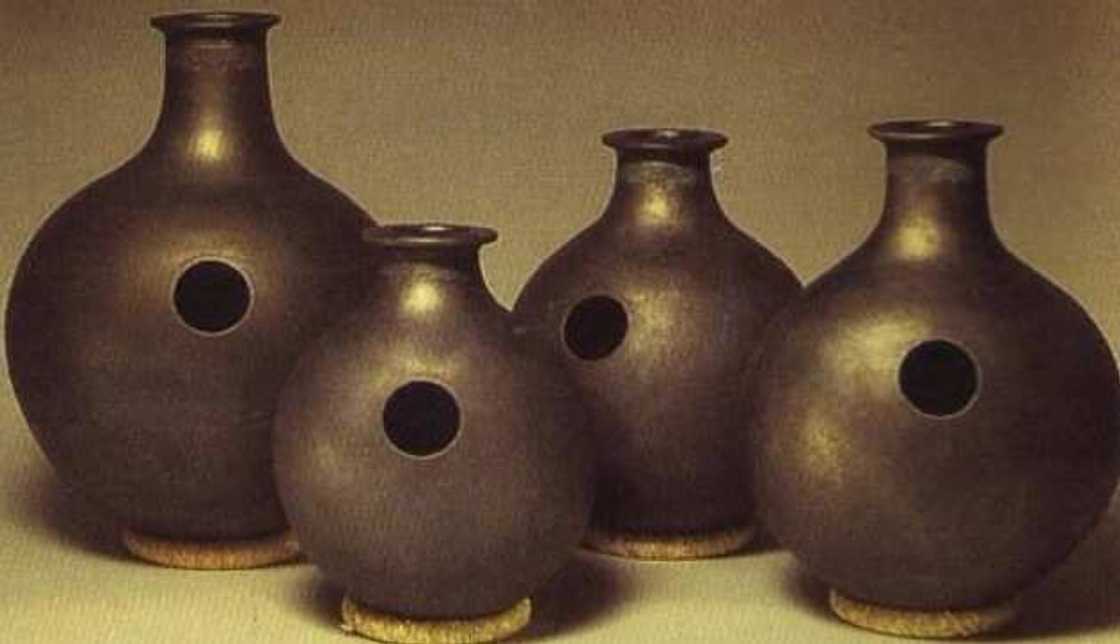
7. Udu
The instrument originates from Nigeria. It resembles a vessel or jug that was once used to collect water from the river. Unlike other musical instruments, it is made of clay, not wood. The sound and its pitch are affected by the cavity, size, and style of play.
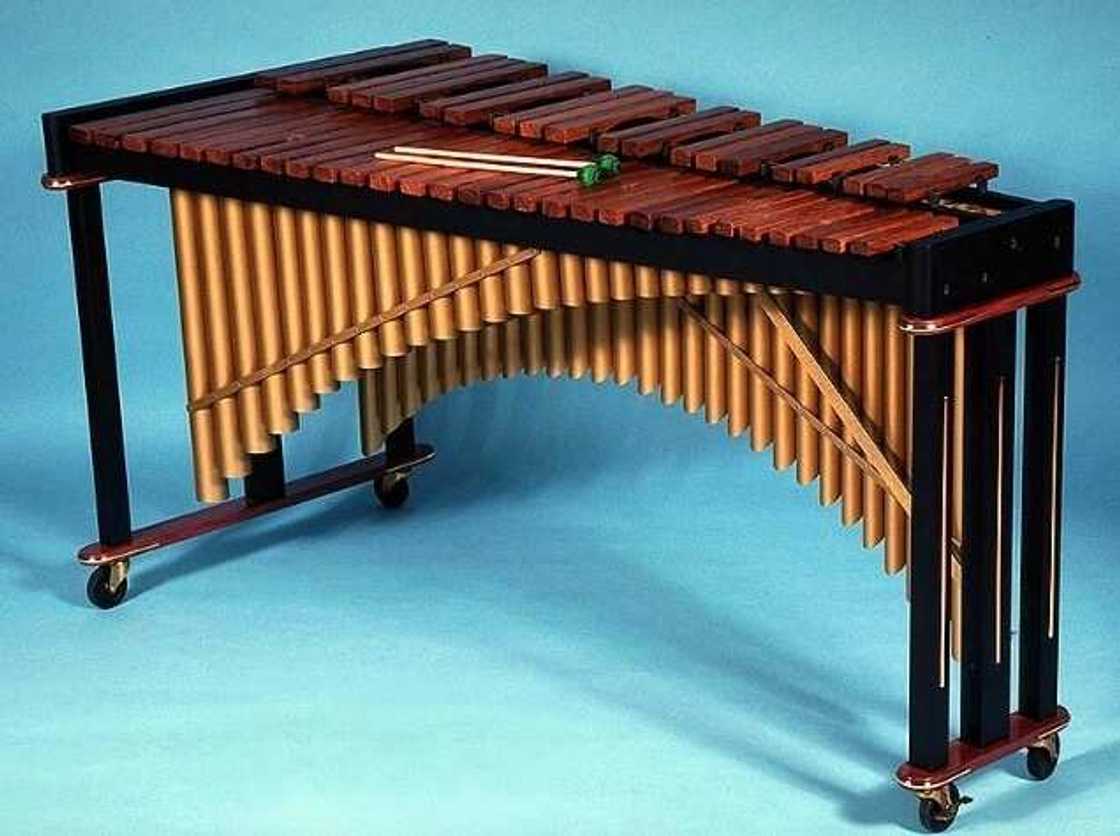
8. Marimba
It is considered an African type of xylophone. Small boards are placed on a wooden box. They are not tightly secured with a cord/string. The sound is played by non-strong blows with sticks or small hammers. It is popular in East and Central Africa in regions such as Kenya, Zambia, Zimbabwe, and the Central African Republic.
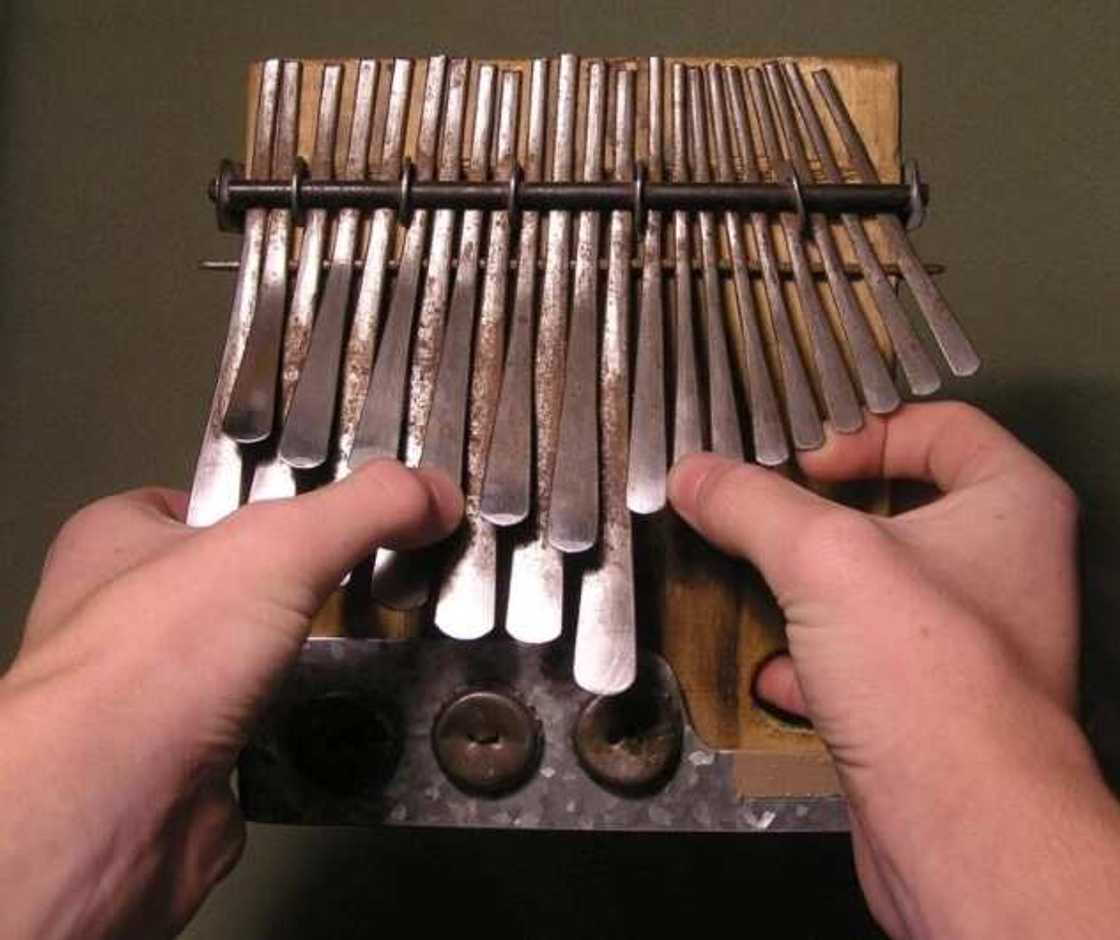
9. Mbira
It is a thumb piano, like a Kalimba. It consists of two rows of metal strips that are staggered on a wooden surface. This musical instrument is best known in East and South Africa. Countries, where it is popular, include Namibia, Zambia, Zimbabwe, Swaziland, and Tanzania.
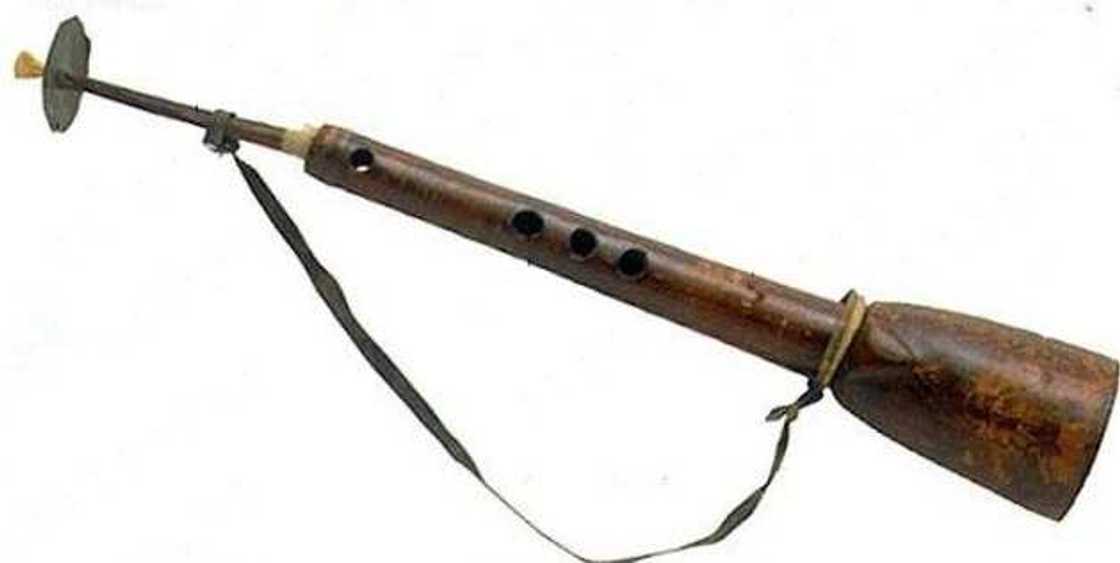
10. Algaita
Algaita is a popular wind instrument found in West Africa. It is closely related to such a wind instrument as “Oboe”, but does not look like it. A wide hole is made on the base and open finger holes are on the side. The instrument is made of cane and is used in many ceremonies in Ghana, Senegal, Nigeria, Togo, Benin, and other regions.
READ ALSO: 21 native Hausa words and their meaning in English
The traditional music depicts the spirit of the African people. The instruments mentioned above are very often used during traditional occasions or in some cases, are just decorative elements that represent the native spirit.
Source: Legit.ng



